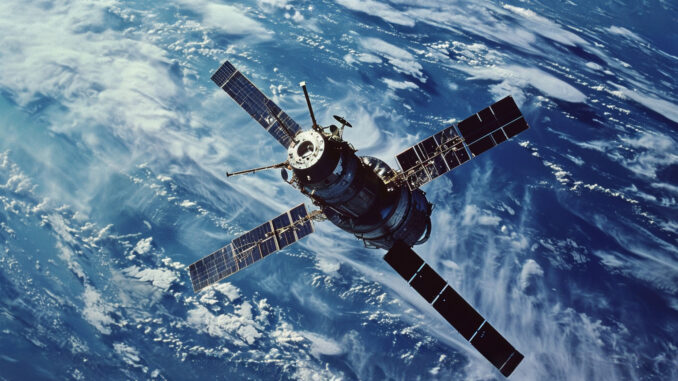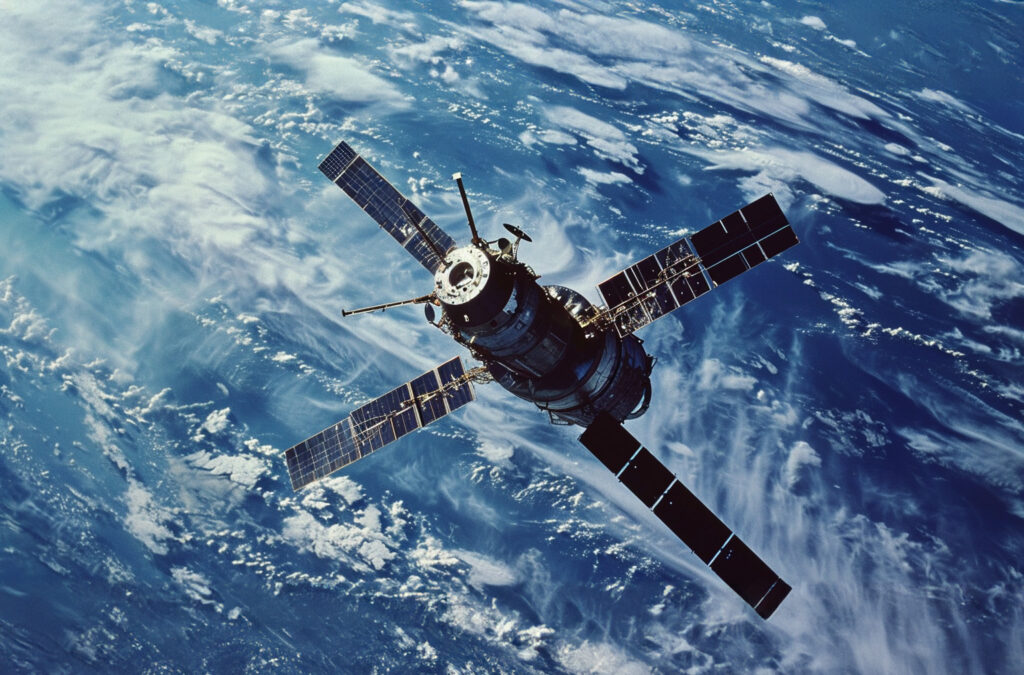
Russia’s GLONASS satellites are suffering from breakdowns and inadequate funding, threatening their reliability. We take a look at the technical impact and solutions.
In brief
Russia’s GLONASS satellite navigation system is facing increasing difficulties. Many of its satellites have exceeded their seven-year lifespan, causing frequent breakdowns. Modernisation is hampered by sanctions and a lack of funding. Global competition, particularly from the GPS, Beidou and Galileo systems, underlines the importance of reliability and continuous innovation for these critical infrastructures.
Russia’s satellite navigation system, GLONASS, is currently facing major challenges. Designed to rival the American GPS, this system has become vital for Russian civil and military applications. However, technical and financial problems are threatening its long-term viability.
Aging GLONASS satellites
The GLONASS constellation is mainly made up of satellites that have exceeded their planned lifetime of seven years. These ageing satellites, mainly GLONASS-Ms weighing 1,450 kg, are gradually being replaced by lighter GLONASS-K models (750 kg) with a lifespan extended to ten years. However, the lack of funding from Roscosmos, the Russian space agency, is delaying these necessary replacements.
Consequences of insufficient funding
Roscosmos’ limited funding is preventing not only the rapid replacement of GLONASS satellites but also the innovation needed to maintain competitiveness. The cost of creating and maintaining a satellite navigation system is exorbitant. For example, the American GPS system cost around 12 billion dollars. Russia, because of Western sanctions and falling oil revenues, is finding it difficult to allocate the funds needed to maintain GLONASS.
The impact of international sanctions
The sanctions imposed by Western countries in response to the invasion of Ukraine have exacerbated GLONASS’s problems. These sanctions are blocking access to the advanced technological components needed for the satellites to function properly and be upgraded. Although China is now supplying some of these components, this does not solve the fundamental problem of lack of funding.
International competition and strategic issues
In addition to GPS, other systems such as China’s Beidou and Europe’s Galileo are increasing the competitive pressure on GLONASS. These systems, like GLONASS, require ongoing investment to remain operational and at the cutting edge of technology. For example, China’s Beidou, operational since 2020, is seeking to become profitable, an objective that even GPS has not directly achieved.
Problems of congestion and spectrum interference
The coexistence of several satellite navigation systems brings with it additional challenges such as spectrum congestion and signal interference. International coordination is becoming crucial to avoid these problems and ensure the harmonious use of frequencies.
The challenges of jamming and spoofing
Jamming and spoofing of GPS signals are growing threats, particularly from nations such as Russia. These techniques disrupt navigation signals, affecting accuracy and reliability. Spoofing, in particular, replaces real signals with false ones, misleading navigation systems. INS (inertial navigation systems) are often used as a back-up, but their limited accuracy compared with satellite systems poses a problem.

Innovations and potential solutions
To counter the threats of jamming and spoofing, research is underway to improve the accuracy and robustness of INS. Israel, for example, is making rapid progress in this area. These innovations could reduce dependence on GPS signals by providing reliable alternatives even in the event of disruption.
Military and commercial implications
For military and commercial applications, the reliability of satellite navigation systems is crucial. US military drones, for example, are equipped with anti-jamming systems to ensure that they operate under all circumstances. The loss of a GPS signal for these devices can have serious consequences, hence the importance of back-up solutions such as INS.
The role of international cooperation
International cooperation is needed to ensure the peaceful and efficient use of satellite navigation systems. Standards and regulations must be established to avoid conflicts and interference, thereby ensuring the reliability and safety of the systems for all users.
The Russian GLONASS system is at a critical crossroads, facing technical, financial and political challenges. The future of GLONASS will depend on Russia’s ability to overcome these obstacles and secure the necessary funding and innovation. International competition and threats of jamming add a further layer of complexity, requiring concerted efforts to ensure the reliability and security of satellite navigation systems.
War Wings Daily is an independant magazine.